July flew by in a beautiful blur, and it’s hard to believe that August is already upon us. So much of this year has been devoted to designing and planting the new farm. It’s been a long-standing dream to transform this land into a sanctuary, and we’re so fortunate that Becky Crowley has joined us to help make this dream a reality. When Becky first arrived from England this past winter (for her year-long stay) she shared about a wonderful gardening-centered charity that she was actively involved with called The Lemon Tree Trust.
After reading more about their mission and seeing the photos of the lush gardens being created in the middle of desert camps, I knew that I wanted to get involved and spread the word about their amazing work. The Lemon Tree Trust supports the efforts of refugees and communities of forced migrants to create home and community gardens in refugee camps in the Middle East by providing seeds and plants, hosting garden competitions, and sharing educational resources. They strive to empower people to improve their well-being and their environment, with a particular focus on women coming together to change their communities from the ground up.
Back in June we sent hundreds of packets of Floret seeds to The Lemon Tree Trust as part of their “Gardener to Gardener” Seed Appeal program, and we’ll be sending many more in the near future. Recently I had the opportunity to sit down with Stephanie Hunt, founder of The Lemon Tree Trust. If you need a little reminder that there is still so much good happening in the world, I highly encourage you to take some time to read more about this incredible cause.
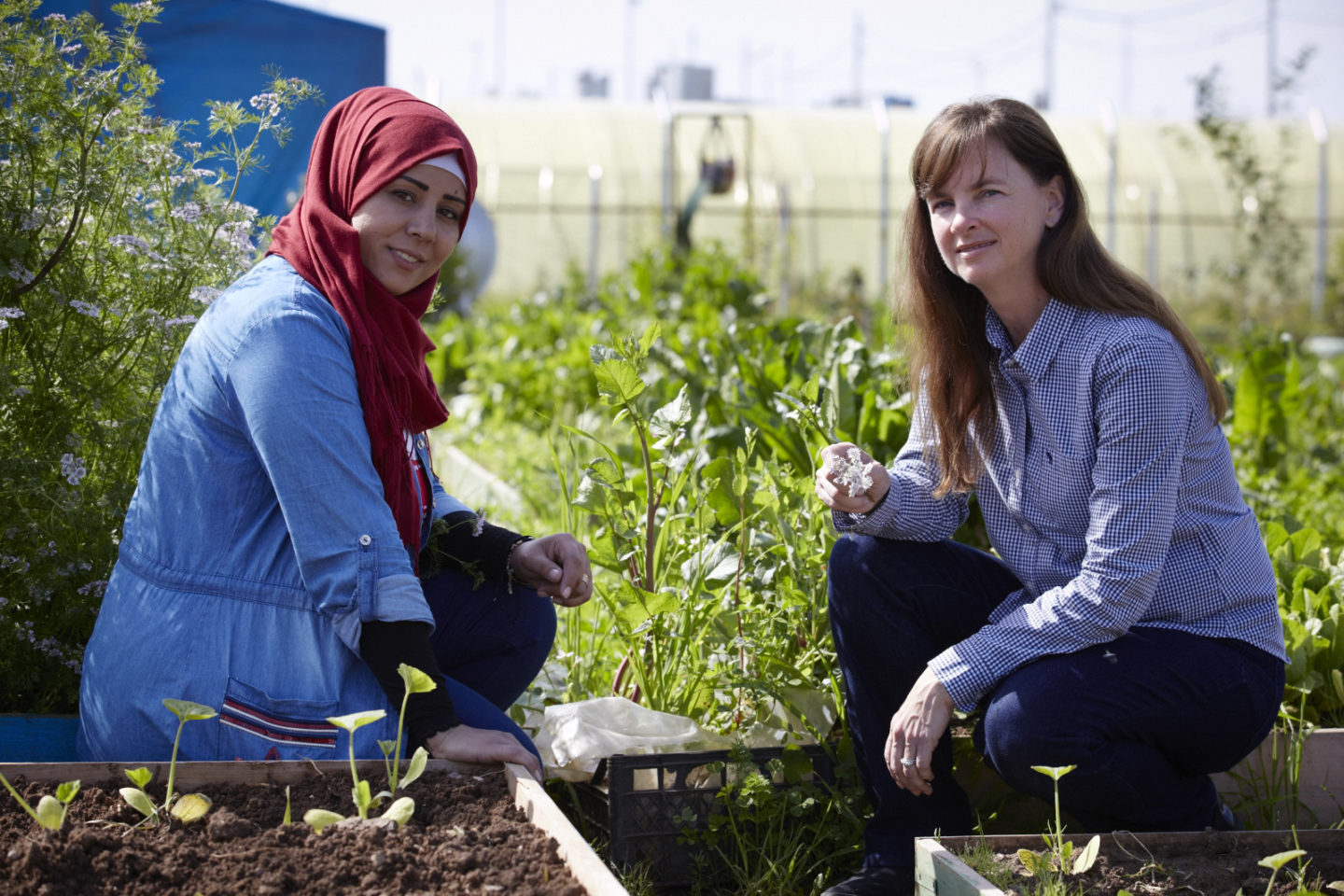 Erin: What were your experiences that led to the vision and founding of Lemon Tree Trust?
Erin: What were your experiences that led to the vision and founding of Lemon Tree Trust?
Although I was born and raised in Texas, my father was a banker, and we moved around a lot. I spent my formative years and took my first job in London surrounded by garden squares, city parks, and the estate parklands of Hampstead and Richmond. It was a joy to be living in such a vibrant city yet have access to vast areas of green, and it was apparent everywhere that London is a city of gardeners. Balconies are packed with pots, postage stamp gardens are filled with flowers and vegetables, and incredible community allotment sites are lovingly tended by young and old gardeners alike.
Later in my career, after starting a family and becoming involved in several nonprofit organizations in Dallas, I spent several years on the voluntary advisory board of the United Nations Refugee Agency. On a trip to Jordan, visiting refugee camps set up in the wake of the Syrian war, I saw that people were gardening, despite everything, and this fascinated me. I spoke to people who had brought seeds and cuttings with them from home, and I was reminded of the community gardens of London and realized that this might be something that we personally, my husband and I, could support. I asked people what they needed, and their simple answer was seeds. I returned home determined to help resettled refugee communities in Dallas by establishing community garden sites in the city. Lemon Tree Trust was established just a few years later to extend this work to the Kurdistan Region of Iraq.
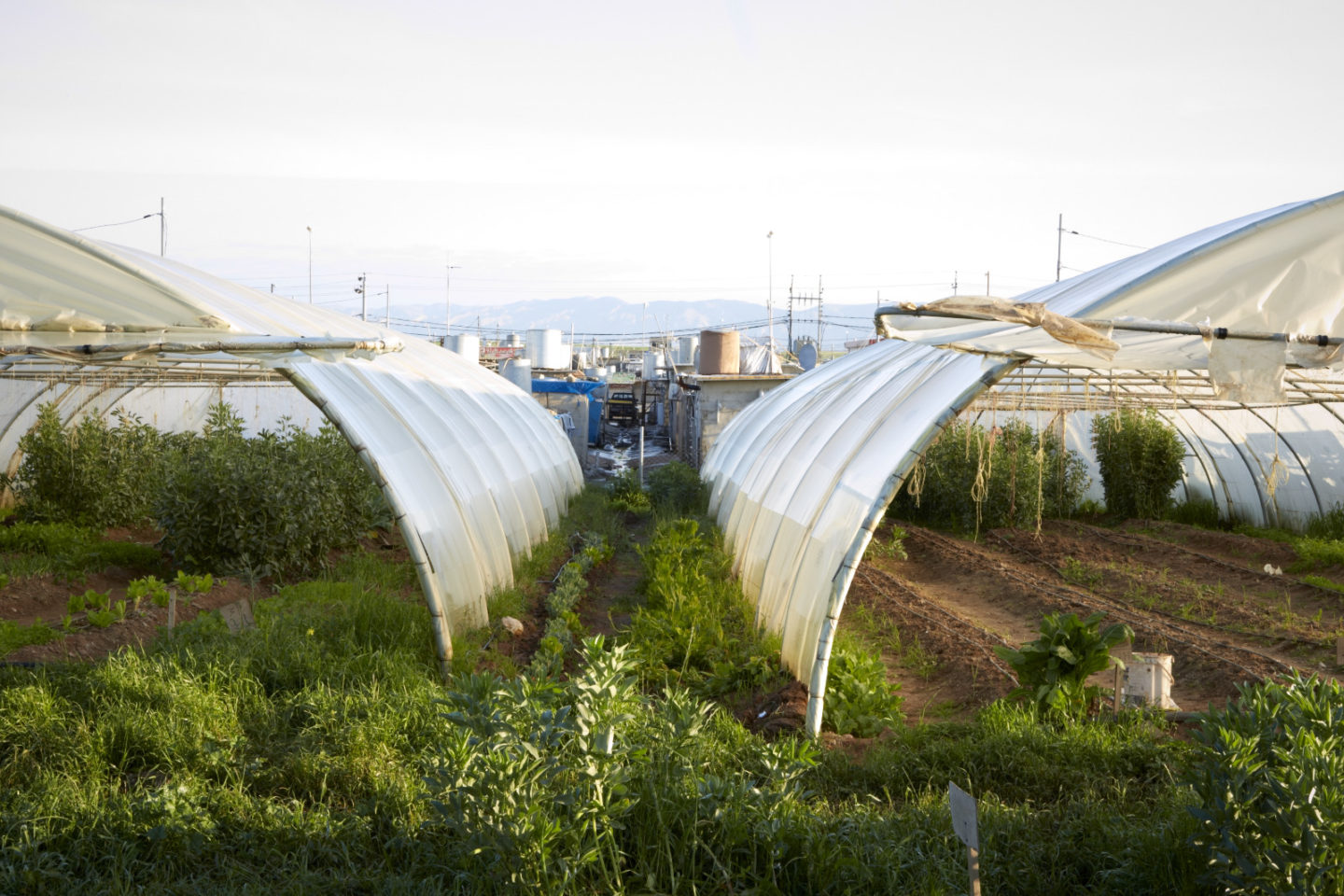
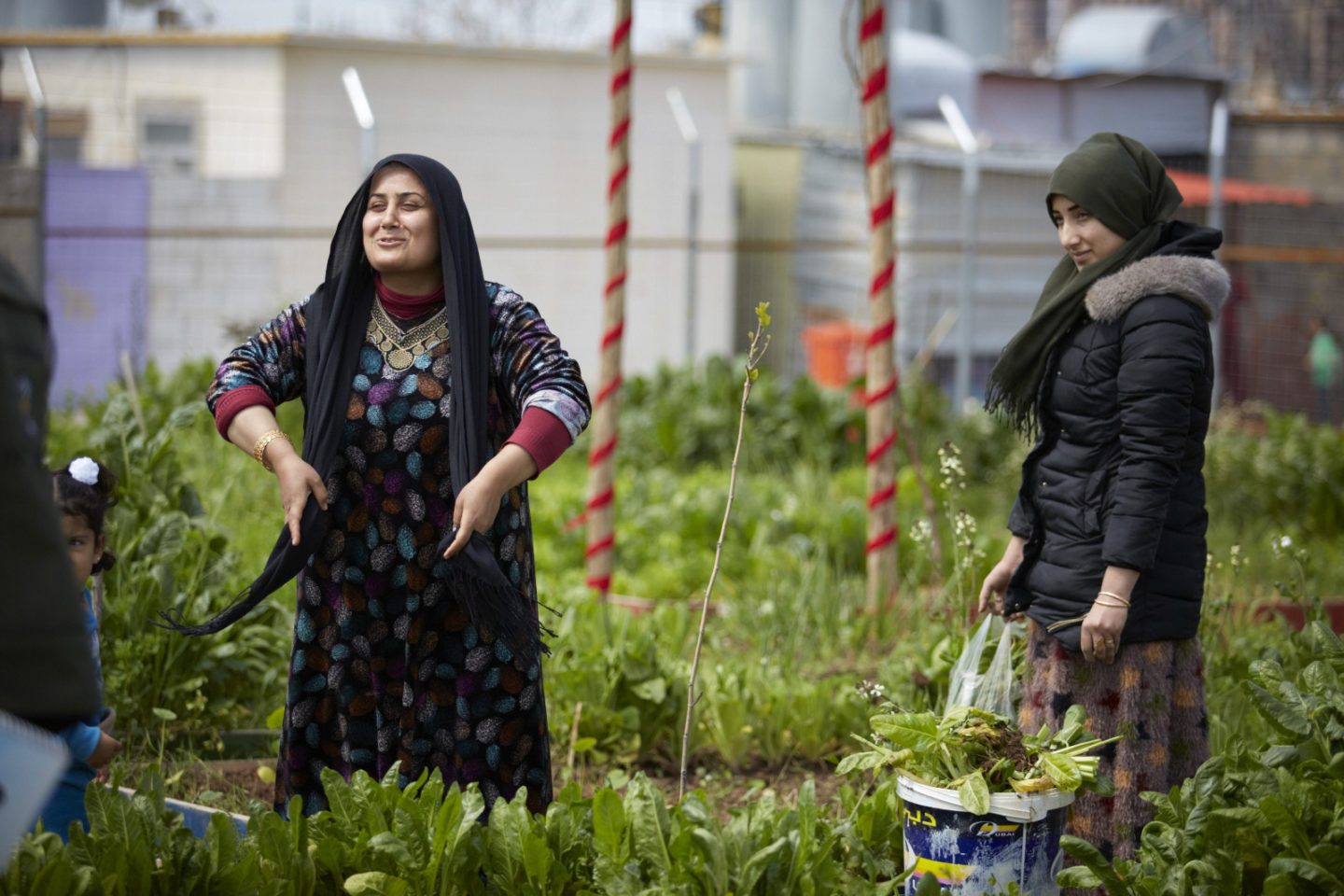
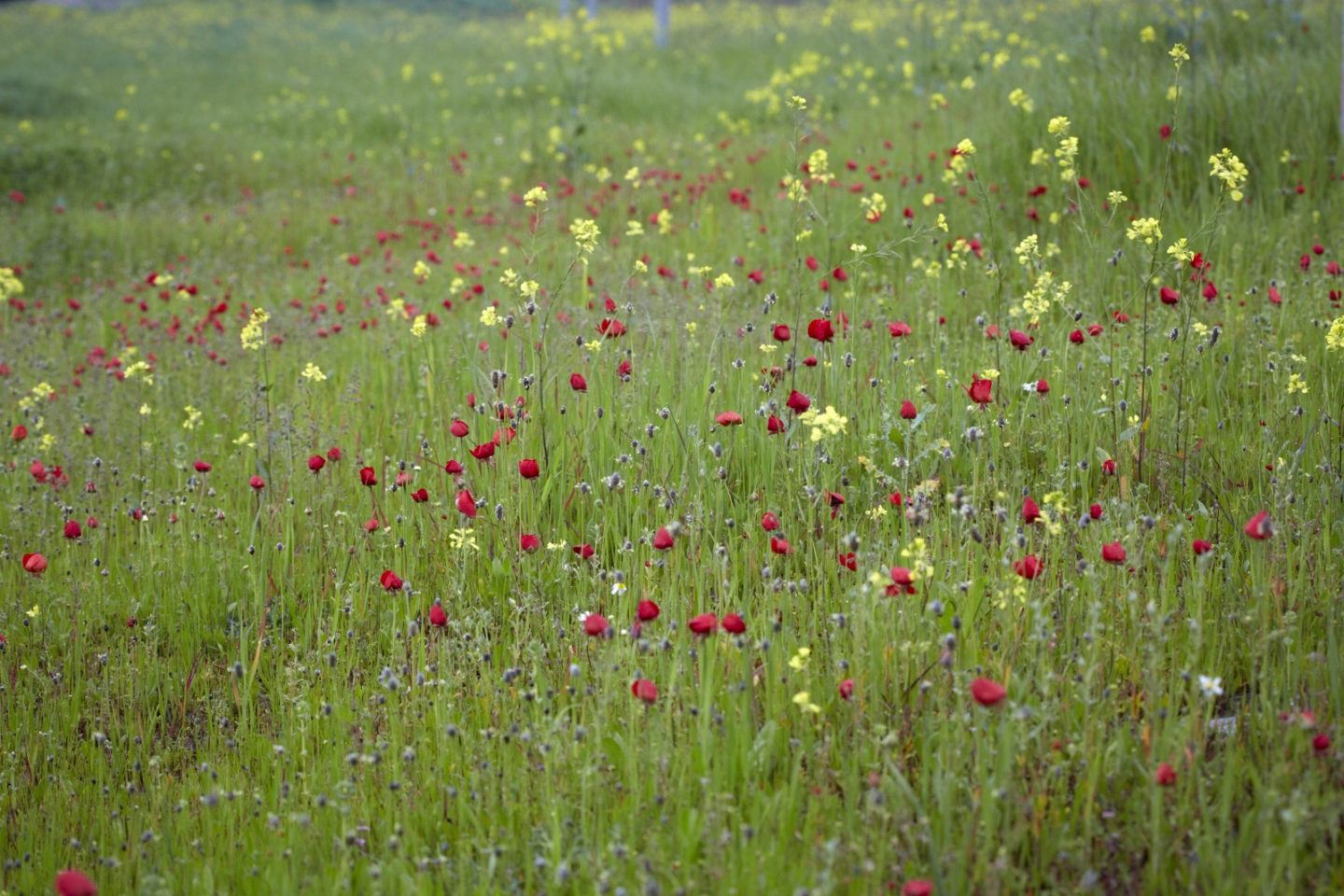
Erin: Can you describe how the organization has grown and changed in the past five years, since its founding, and tell us what has made the greatest difference in being able to do this work?
A lot has happened in five years, and I have been fortunate to have been helped by some exceptional people along the way. Back in 2015 we were lucky to meet a really progressive female camp manager in Kurdistan, and we started by walking the streets of Domiz 1 camp, the largest camp for Syrian refugees in the Kurdistan region, looking for gardeners and asking people what they needed.
Mikey Tomkins, an urban farming specialist from the U.K., was instrumental in helping to establish our community gardening initiatives in Domiz 1 camp and helped us find Aveen Ibrahem (in photo at top with Stephanie), an inspirational gardener who is now our Operations Manager in Iraq. She manages a team of people across seven camps, coordinating our annual garden competitions, monthly garden celebrations and community garden building.
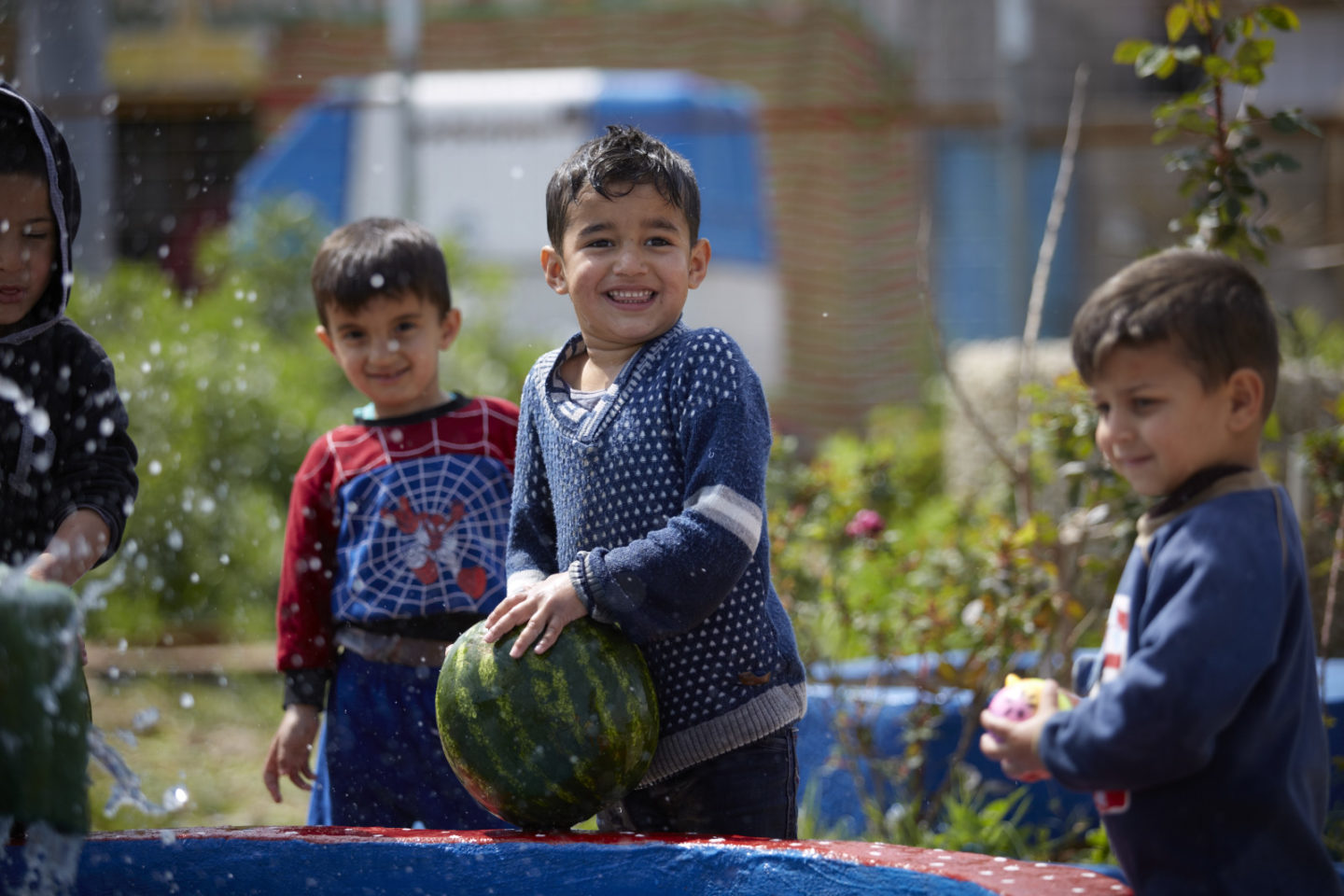
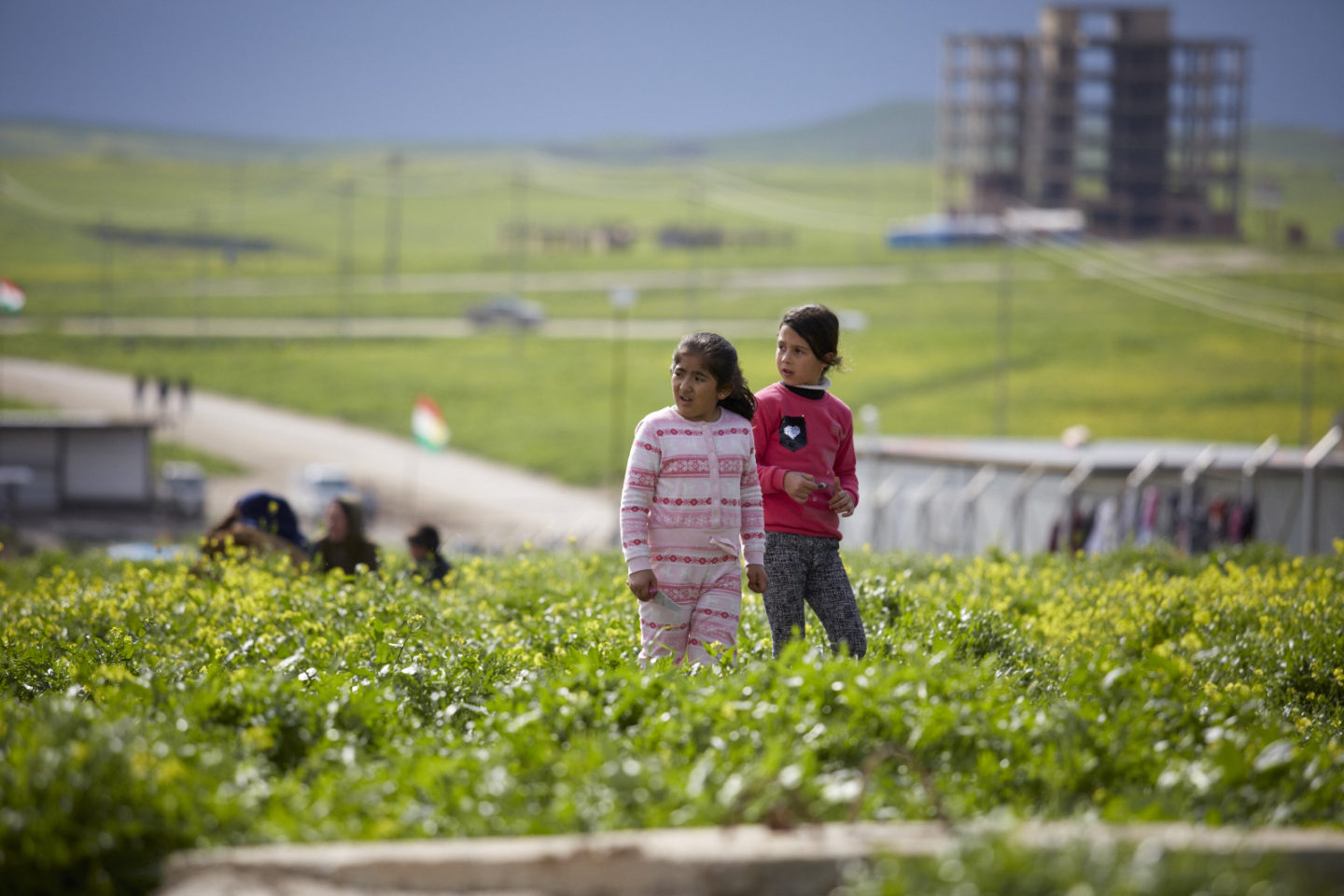
Erin: Where are some of the camps you or your staff have focused on recently, and what it is like to visit the people there?
The COVID-19 curfews, which were imposed back in March in Kurdistan to help stop the spread of the disease, have, ironically, given us the opportunity to reach even more people this year. We took our popular annual garden competitions online and opened them up to more camps this year, inviting people to send us photographs of their home gardens rather than us visit in person. We have received thousands of entries—all available to view on our online Flickr galleries—and have announced weekly winners, rather than one-off winners, as we usually do in May.
We have continued to offer our productive garden in Domiz 1 camp as a space for the community to grow food and flowers, and we have launched a global seed appeal to support our emergency seed distributions to camps across the region. We plan to distribute 100,000 packets of seed this year and would love to double the number of camps we are active in by the end of the year.
The thing I have missed most this year, though, is being able to visit. My last visit to the region was in December 2019, and I am so grateful for that time now. We regularly speak to the team on video calls—this has been the norm for the humanitarian sector for years—but it’s not quite the same as being there. People living in situations of forced migration are incredibly resourceful and creative and, above all, generous. Our visits are always accompanied with regular offers of tea, taken black and sweet, served in gorgeous glass cups, and people are always proud to show us their gardens, carved out of the spaces around their home shelters and packed with shade trees, vines, flowers, and food crops.
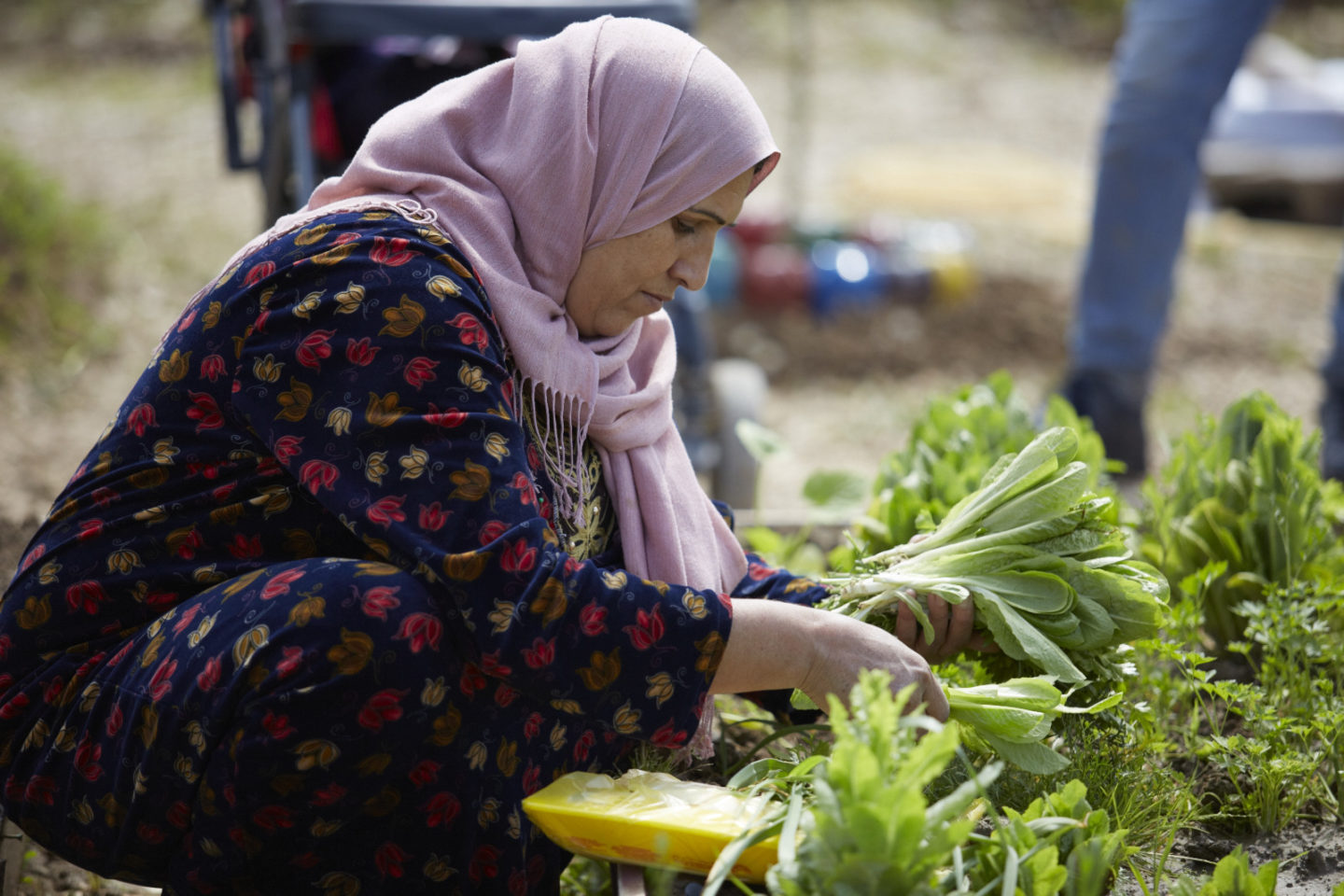 Erin: Lemon Tree Trust emphasizes the impact that gardening can have on mental health, women’s empowerment, and community. Are there one or two stories of particular individuals, women or men, that stay with you?
Erin: Lemon Tree Trust emphasizes the impact that gardening can have on mental health, women’s empowerment, and community. Are there one or two stories of particular individuals, women or men, that stay with you?
We have made a deliberate decision to focus our support at the shelter level. We visit people at home, delivering seed packets and celebrating their home gardens. Women in many Middle Eastern cultures may not yet enjoy the equality they crave outside the home, but in most cases, they manage their household, and, despite having experienced and witnessed unspeakable violence and terror, they are survivors. They get on with it; they cook, clean, wash clothes, educate their children, help their neighbors and do everything in their power to start a new life. Our focus on gardening, for food and for pleasure, supports the idea that women are purposeful and need something to occupy them. Gardening helps them put down roots, both physically and metaphorically, and we often hear women say that planting seeds gives them hope that the future is possible.
I have met so many wonderful women and men during my visits to Kurdistan; I loved meeting Khadeja, last summer, who served us incredible homemade rose syrup and who told us that she had learned how to make it because she couldn’t afford to buy her children fizzy drinks. I was moved by the story of a mother of five whose husband had unexpectedly taken a second wife, leaving her with no financial support for their children and no means of earning a living, but I am constantly inspired and driven by Aveen’s story of survival. She and her husband left everything behind in Syria to move their three children away from danger. They arrived in Domiz when it was still a tented camp, with very little in the way of emergency support. Not only did Aveen encourage her husband to join the Kurdish Peshmerga army, to help protect the region from ISIS, she nursed their daughter, looked after their young sons, and helped establish Lemon Tree Trust activities in the camp. Sidra, Aveen’s daughter, died in 2018 with a terminal heart condition. Aveen lives and works in her memory, refusing to allow her grief to stop her from gardening and supporting her community. You can read more about Aveen’s story, and those of many more people we have met, on our website.
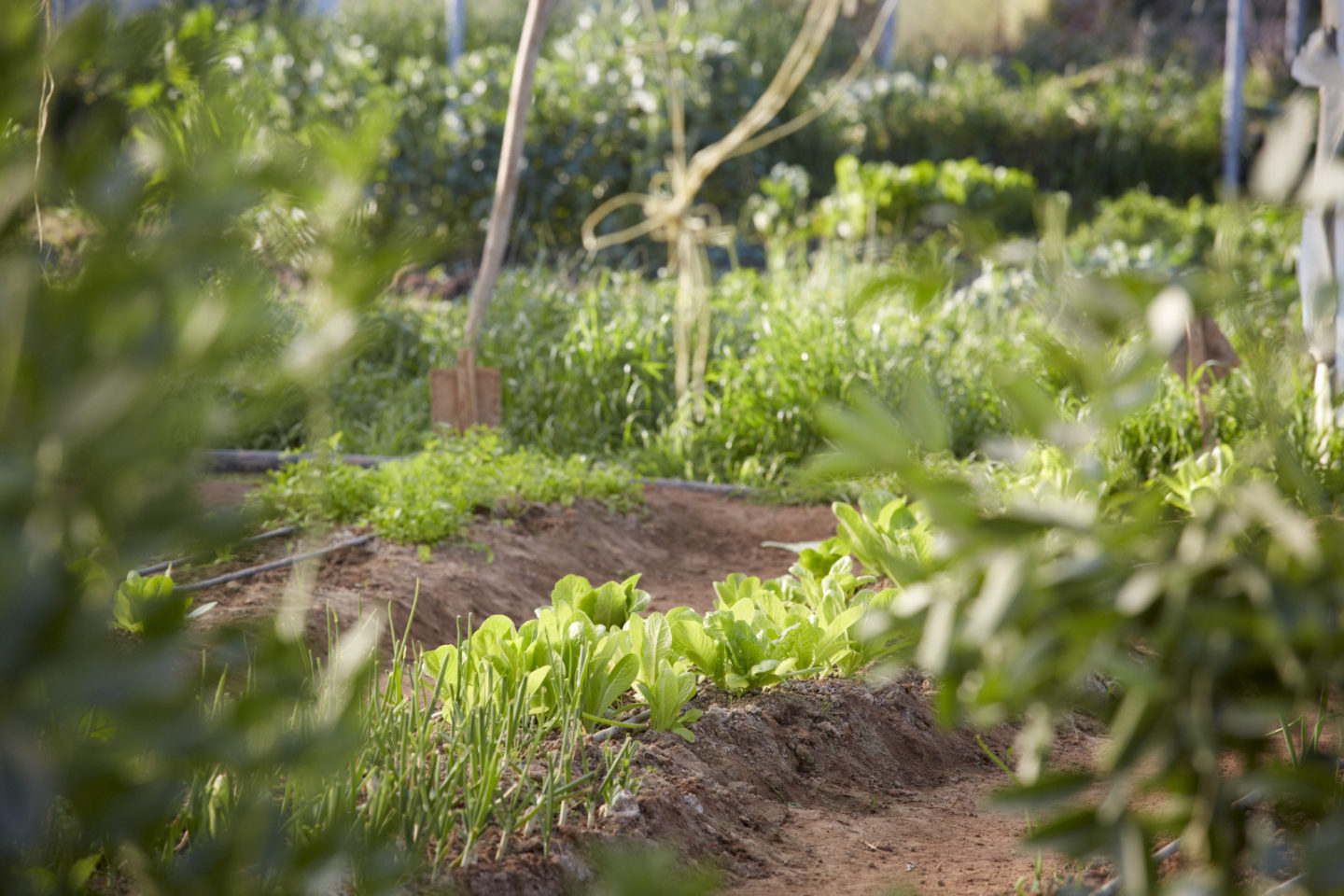
Erin: Have you found that a desire to garden is a universal craving for people living in refugee camps, regardless of where they come from?
Gardening is largely apolitical. It is enjoyed by people from all walks of life and it is built on a universal language of plants and an inherent need we have to connect with nature. Regardless of background, wealth, culture, color, gardening offers people solace and a way to escape the stresses of everyday life. The recent months we have spent in COVID-19 lockdown has brought this into stark relief—even Texans have started gardening!—and our ability to continue to distribute seeds and celebrate gardening in camps in Kurdistan has been crucial.
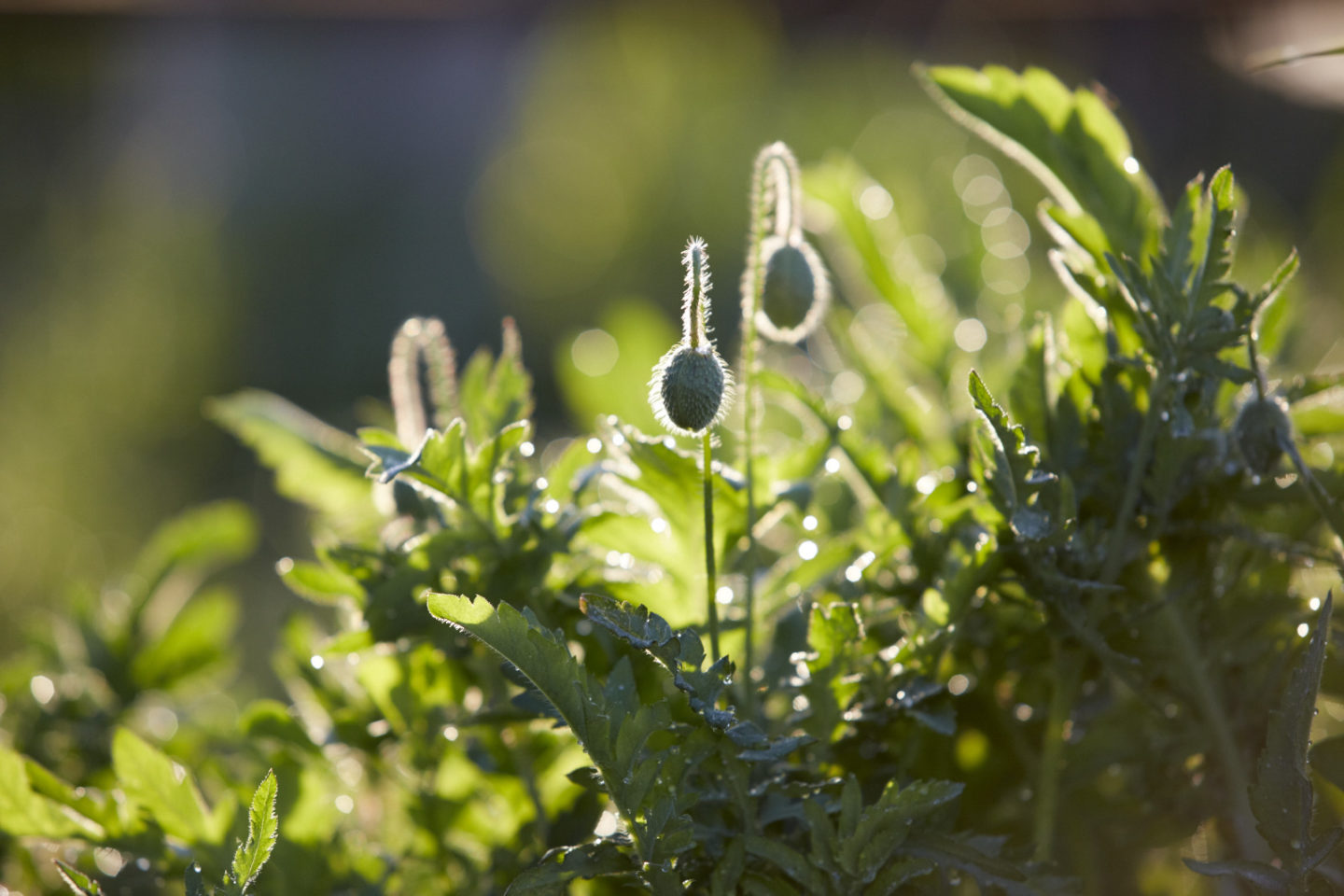 Erin: Can you tell us what life is like in the camps? Are people able to leave the camp to work off-site?
Erin: Can you tell us what life is like in the camps? Are people able to leave the camp to work off-site?
A common misconception of people living in refugee camps is that they are completely reliant on international and host government aid, but in our experience in the Kurdistan region, this is simply not the case. Most people provide for their families and contribute to their local community. Many people have found work in camp or in the nearest town or city. Life in a refugee camp is undoubtedly difficult—Domiz 1 camp is home to 32,000 people, and there are just three health clinics—and of course conditions differ wildly across camps and countries. But in our experience, people are desperate to get on with their lives; they are looking for opportunity and want to find ways to contribute to their new community.
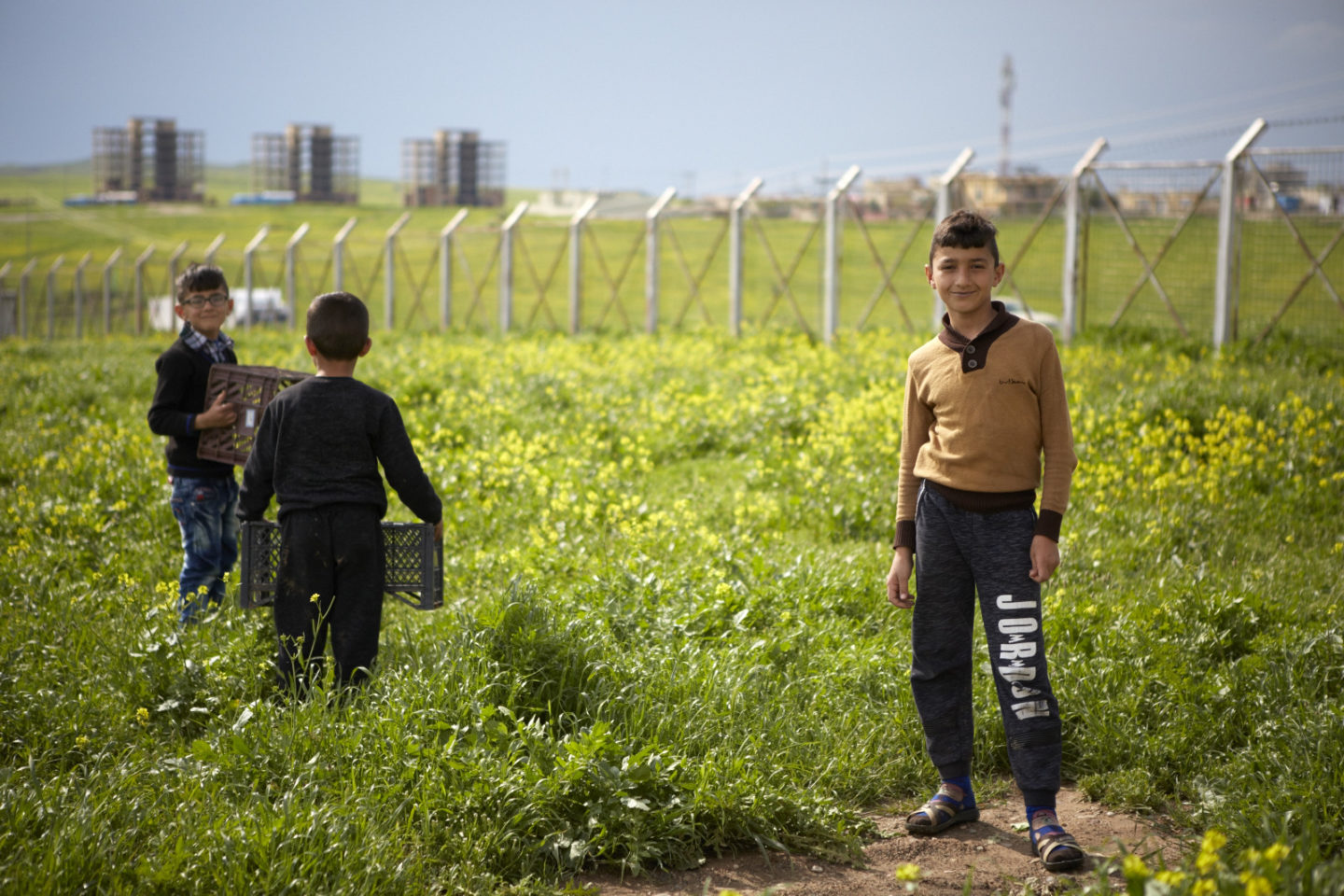 Since the outbreak of COVID-19, the Kurdistan Regional Government has restricted internal travel in the region and placed people under strict “stay-in-shelter” curfews to limit the spread of the virus. Refugee and IDP (internally displaced persons) camps have been closed to external visitors, and people are no longer allowed to leave to go to work. We estimate at least 40 percent of people in Domiz 1 camp alone have lost their jobs, meaning their families’ only source of income has been lost.
Since the outbreak of COVID-19, the Kurdistan Regional Government has restricted internal travel in the region and placed people under strict “stay-in-shelter” curfews to limit the spread of the virus. Refugee and IDP (internally displaced persons) camps have been closed to external visitors, and people are no longer allowed to leave to go to work. We estimate at least 40 percent of people in Domiz 1 camp alone have lost their jobs, meaning their families’ only source of income has been lost.
Back in March 2020, when it quickly became apparent that we needed to adapt our plans for this year, we asked our team the same questions we have been asking since our inception back in 2015: “What do people need?” and “What do people want?” The answer was simple: seeds. People were worried about access to fresh food, not only because of transport restrictions, but also because of affordability. Only a fraction of people who live in camps receive food vouchers, and most must purchase their own. Moreover, as people spent more time at home, less able to get out to socialize, they needed activities to do with their families at their shelter.
While the region copes with and recovers from the long-term economic effects of the COVID-19 pandemic, we hope that, by providing packets of food and flower seeds, we not only are helping food security for vulnerable families but we also are supporting the physical and mental well-being of people who are dealing with one more challenge. As they are for so many of us, home gardens are a sanctuary for them, now more than ever, and we are more determined this year than ever before to help people grow for food, for joy, and for hope.
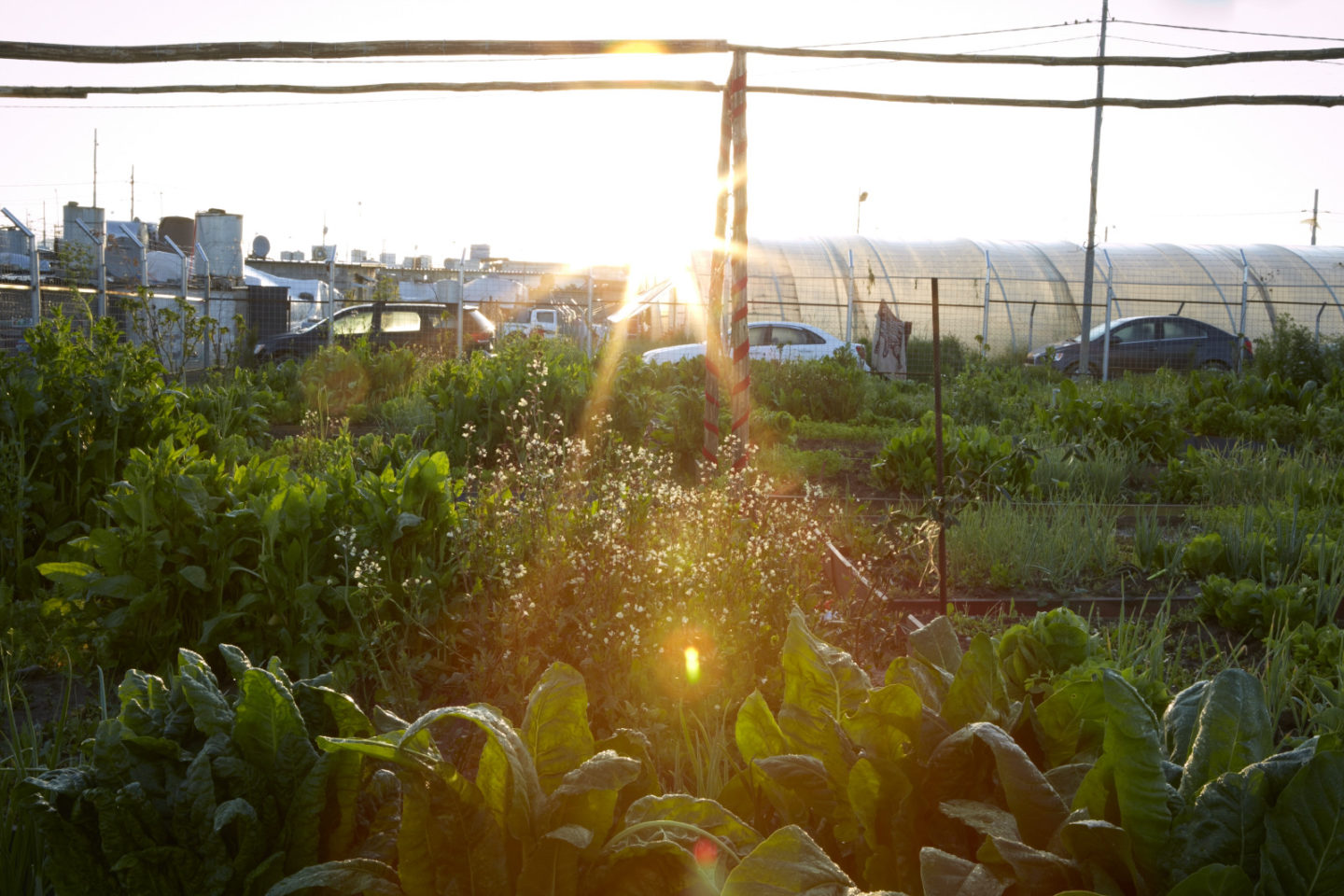 Erin: You’ve mentioned to us recently that people in the camp communities are interested in selling both vegetables and flowers they’ve grown and that the flowers are more profitable! What do you make of that?
Erin: You’ve mentioned to us recently that people in the camp communities are interested in selling both vegetables and flowers they’ve grown and that the flowers are more profitable! What do you make of that?
We met a Kurdish rose farmer, Sidqi Barwari, on our most recent trip to the region. He had been importing roses from Turkey, the Netherlands, and Kenya for years before he decided to establish his own farm to grow and supply home-grown blooms. He is now the largest flower grower in Kurdistan, and despite COVID-19, his business is thriving. Traditionally, farming in the region has been focused on food, and there is a lot of competition for shelf space. Flowers are much less available but in great demand, making them profitable if you can grow your own.
We have yet to establish a way to formally sell the plants and flowers we grow in camp, as NGO regulations prevent us from setting up a marketplace. Former employees of Lemon Tree Trust are now running successful nursery businesses, though, and we are pleased to have been able to offer people the grounding and encouragement they needed to start their own business and make a living from growing and selling flowers. What could be more pleasurable?
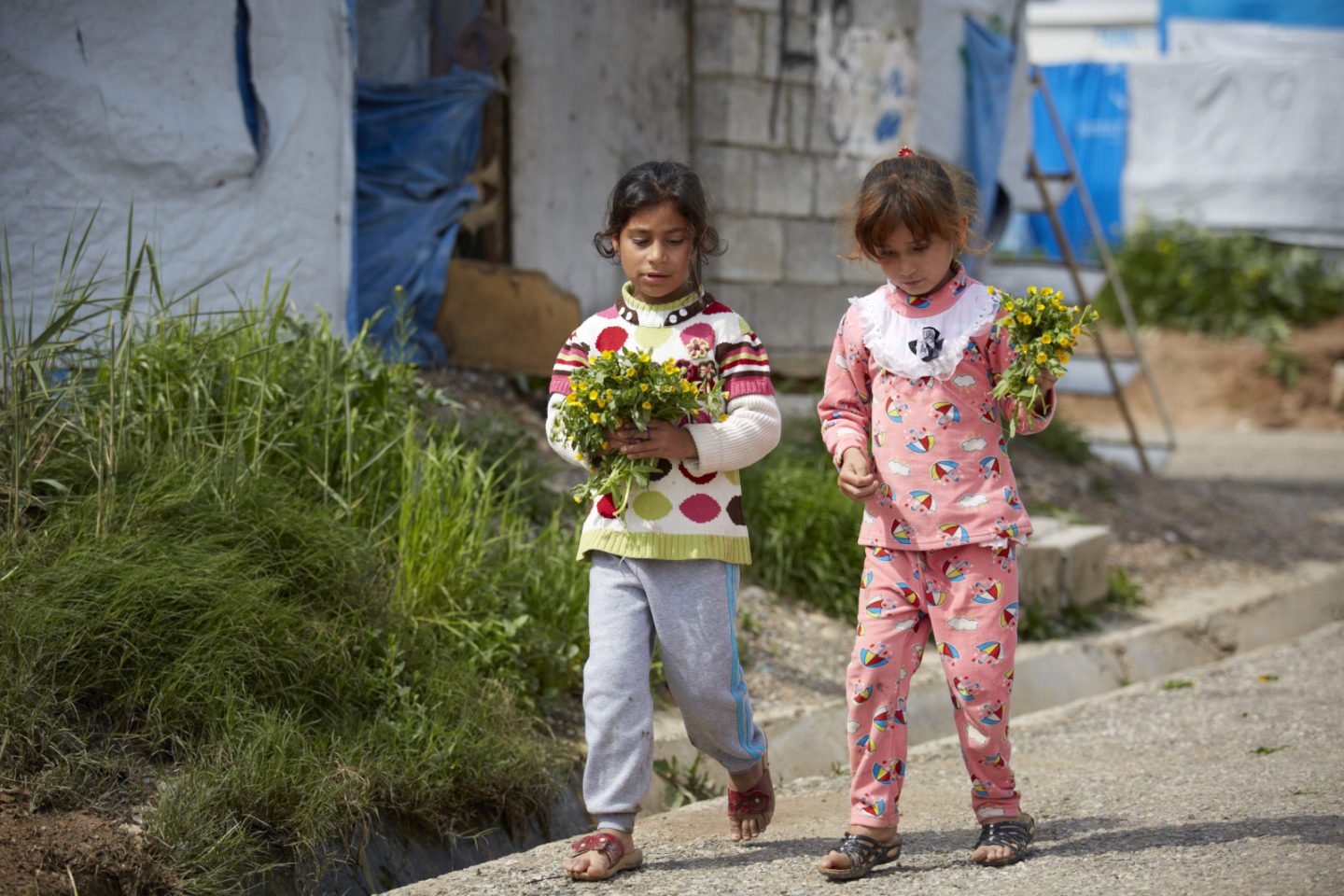 Erin: What effect has the COVID-19 pandemic had on your work with people in the camps, and has that shifted over the past few weeks?
Erin: What effect has the COVID-19 pandemic had on your work with people in the camps, and has that shifted over the past few weeks?
Our response to the outbreak of COVID-19 has been simple: We have pledged to distribute 100,000 packets of seeds to people living in situations of forced migration, and thanks to a partnership with Mr. Fothergill’s seeds in the U.K., and an international “seed appeal” asking gardeners to send us their spare seed, we are on track to deliver this. We have made our garden competitions virtual this year, encouraging anyone with a garden to send us photos, with winners announced every week. With the support of the Royal Horticultural Society in the U.K., we have created and distributed a series of gardening activities for families that are free to download from our website.
COVID-19 cases have begun to surge again in Kurdistan, and further curfews have been put in place over recent days and weeks. We fully expect measures to be in place for the rest of the year, and this is certainly a challenge when planning seed distributions and community garden building. But we are prepared to cope with the measures, with people on the ground willing to be flexible as the situation changes. We have found this year that while having a small team has its challenges, it allows us to pivot and adapt quickly. We do not envy our colleagues in the U.N. trying to cope with a world in crisis!
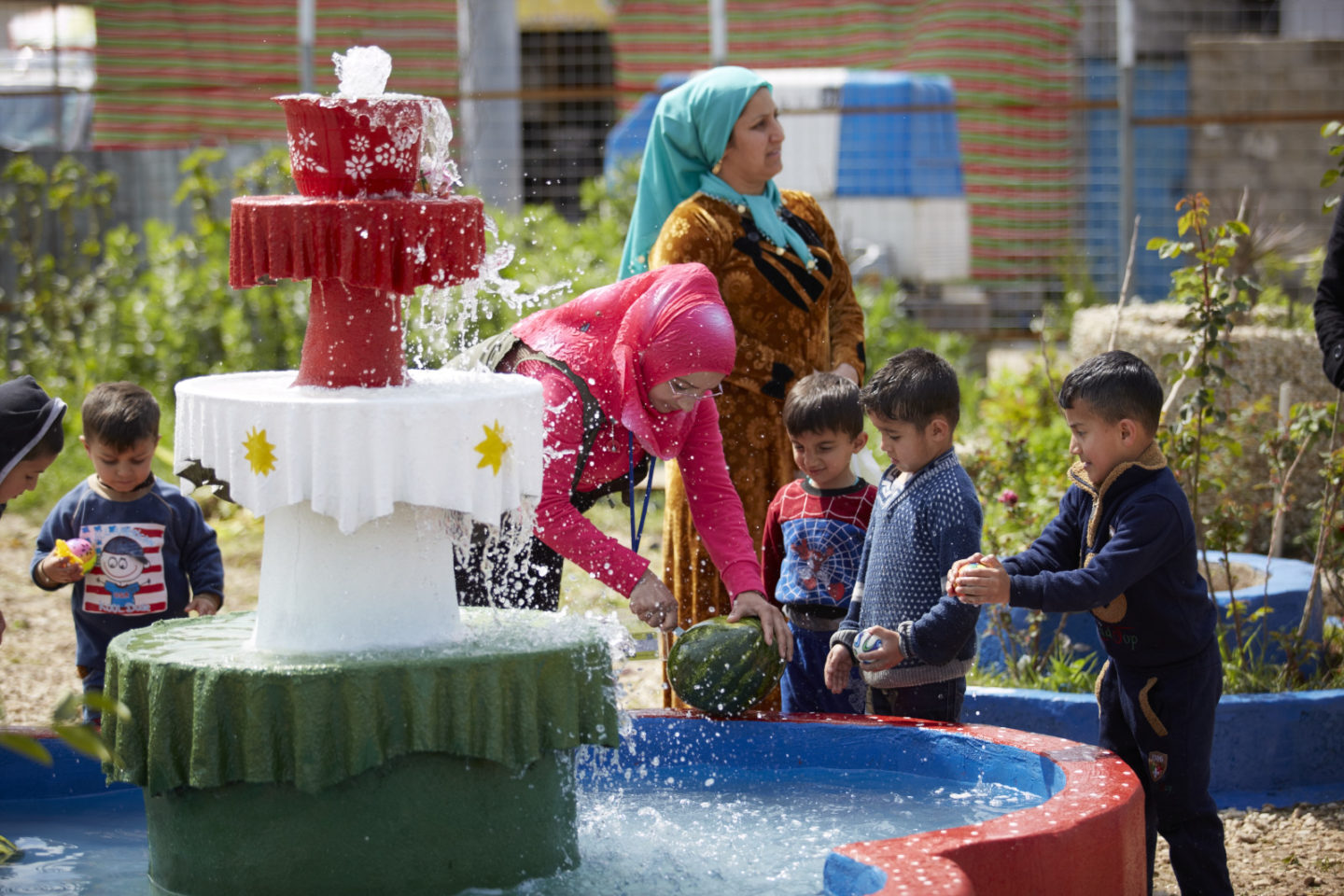 Erin: What are the messages the people in the camp communities have said they’d like to share with the world?
Erin: What are the messages the people in the camp communities have said they’d like to share with the world?
We have asked a few people to share their experiences of COVID-19 lockdown with us this year, to ensure our activities continue to deliver positive outcomes for people, and to remind us why we’re doing this! Gardeners NEVER disappoint. Here are some of the responses we received.
Ahmed Ibrahim Ismail is from Syria and lives in Domiz 2 camp, Kurdistan Region of Iraq. He wrote: “I have a humble garden at my house. I started working on it two years ago with my children, and we have spent many good times in it, especially since the coronavirus curfews have been in place. My garden contains 20 different types of rose; each one has a different color. I also grow grapes, figs, cypress, and pine.”
Hadeya Ezzeldin Ismail is also from Syria. She lives in Gawillan camp, Kurdistan Region of Iraq. She wrote: “I started gardening three years ago to keep myself busy and for the comfort it brings. I now spend five hours every day in my garden, cleaning and watering. My favorite plants are grapes, roses, mint, and parsley. COVID-19 has affected us all psychologically, but it has had a particularly negative impact on the children here. My family and I spend time in the afternoons sitting together in the garden we have made.”
Khokhi Hasso Silo is 39. She lives in Khanki camp with her husband and six children, having fled to the Kurdistan region from Chinchal in Iraq to escape ISIS. She wrote: “We are people used to living in villages in the countryside, and we used to visit neighbors and relatives a lot. Coronavirus has deprived us of that, and this has been very difficult. It has also deprived people of their livelihoods. At home people feel bored because of unemployment, and we must occupy ourselves in order not to be overcome by negative thoughts. We occupy ourselves with our garden. We grow and harvest clean and fresh food, and it gives us somewhere to sit with each other, and this helps us psychologically.”

Erin: What’s the best way for individuals to support the work of Lemon Tree Trust, now and in the future?
We have had an incredible response to our “Gardener to Gardener” Seed Appeal and are now busy sorting through thousands of packets of seed! We welcome all donations, but we probably have enough seed for this year now. I am committed to funding the running costs of Lemon Tree Trust, but we need further funds to allow us to expand our projects and support more people. All voluntary donations we receive are spent directly supporting people with gardening initiatives in camps. You can make a donation to support our work online at lemontreetrust.org/donate or email [email protected] for details about where to send seeds.
Erin: What are the next steps for Lemon Tree Trust?
We are planning the next phase of our seed distribution across more camps in Kurdistan, and we are about to start work on a new community garden in a camp for internationally displaced persons in the region. We also are supporting the International Organization for Migration in Greece with a community garden project at one of their long-term accommodation centers for refugees, and we are planning the support of a very special individual in Syria—more to come on that in due course. We are always on the lookout for organizations we can partner with to deliver gardening initiatives to more communities, and we welcome support of all kinds in order to expand.
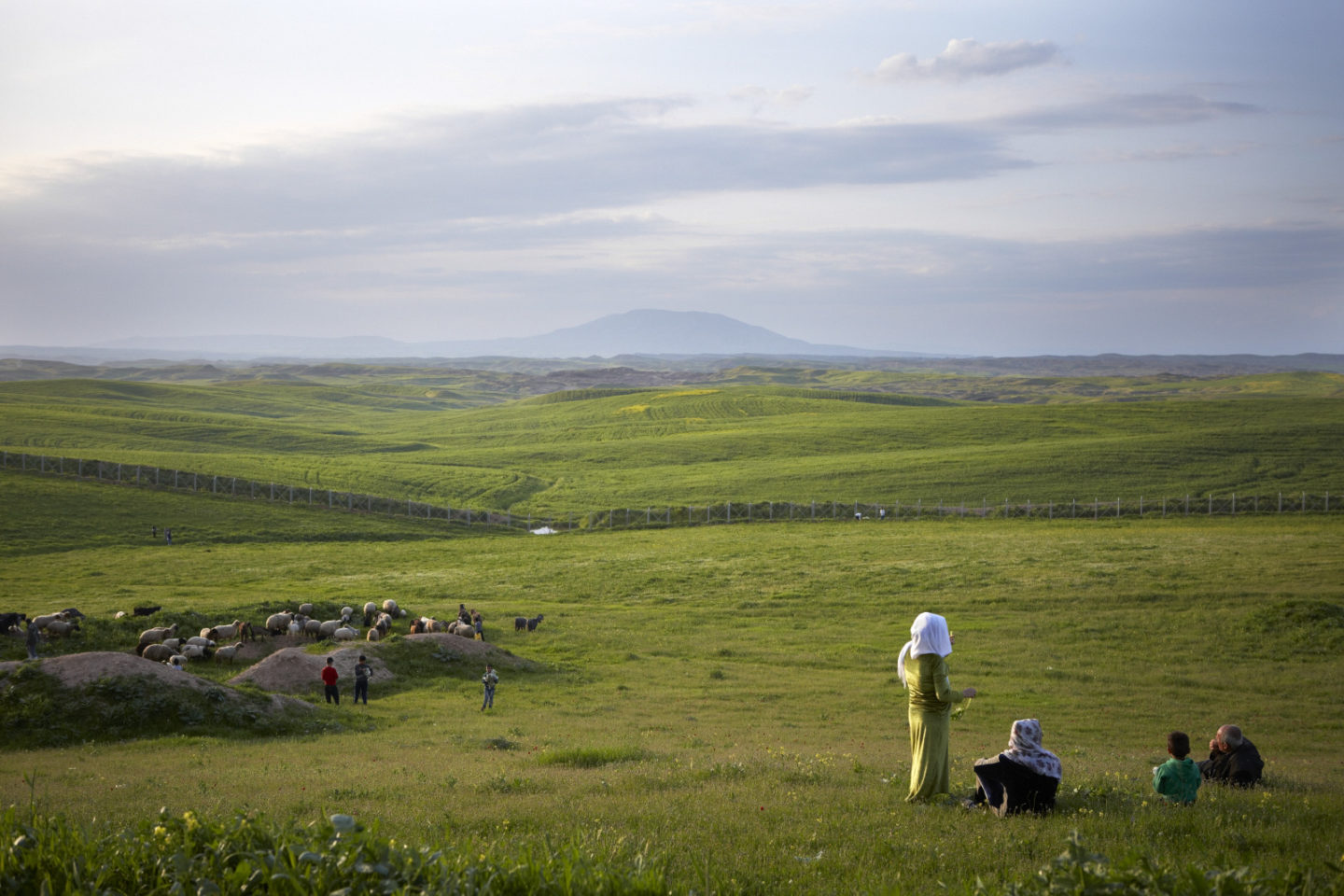 Erin: Is there anything else you’d like to share?
Erin: Is there anything else you’d like to share?
We have been overwhelmed by gardeners’ generosity this year. The response to our seed appeal has been incredible, and we would just like to extend a huge thank you to everyone for getting involved. You can stay in touch with our news and project developments by signing up to our e-newsletter and following our Instagram feed for more regular updates.
Erin: Thank you so much, Stephanie, for being here with us today and sharing about the amazing work of The Lemon Tree Trust.
Learn more and support The Lemon Tree Trust.
Website: lemontreetrust.org
Instagram: @lemontreetrust
Facebook: @lemontreetrust
Twitter: @lemontreetrust
Photos by Britt Willoughby Dyer ©.
Please note: If your comment doesn’t show up right away, sit tight; we have a spam filter that requires we approve comments before they are published.
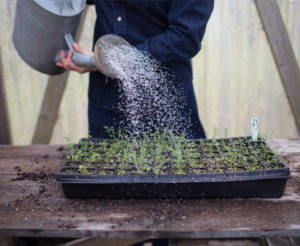
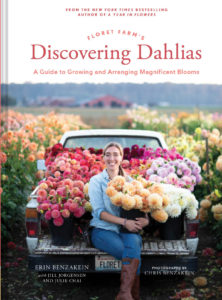
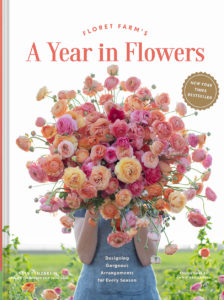
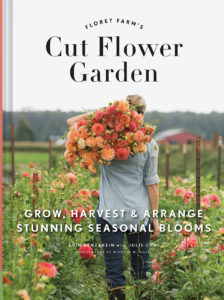

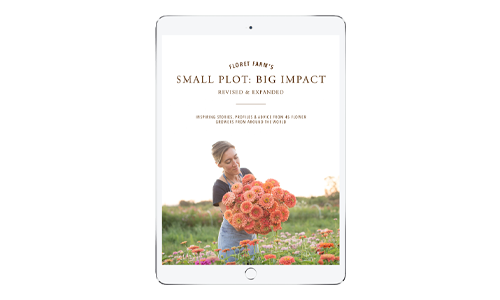
susan mcgowan on
God has to be smiling about this one!